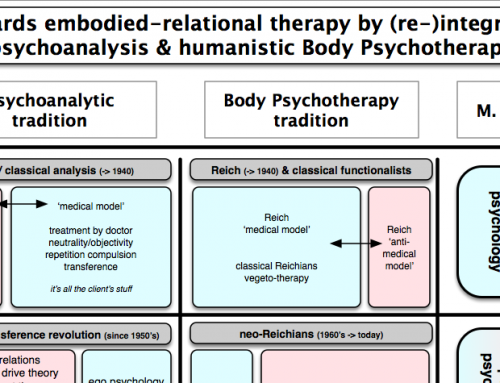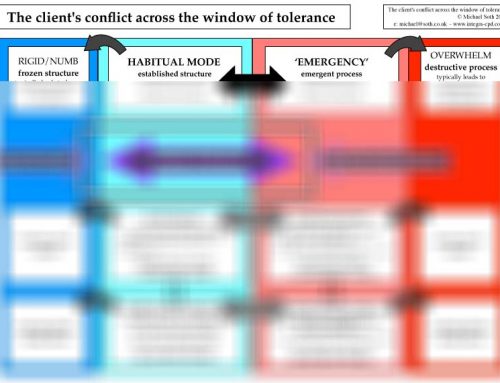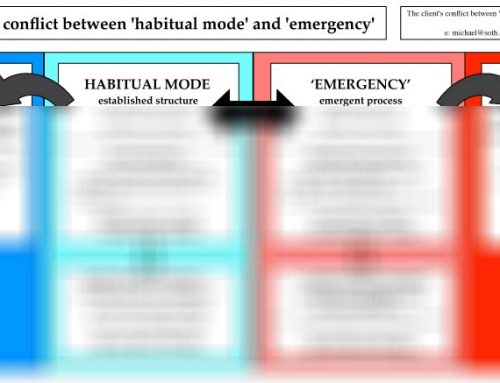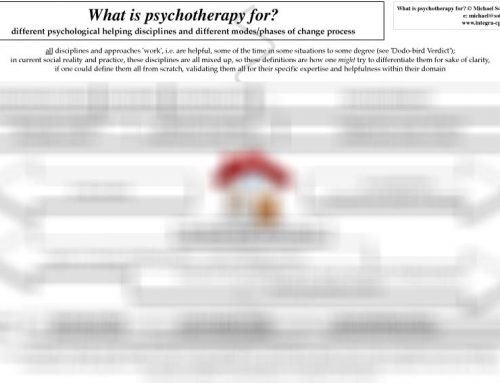Project Description
This handout was put together after supervision teaching session in June 2015, trying to clarify the various tasks and aspects of the supervisor role, which supervisee's expect or project. They are all in various degrees of tension and conflict with each other, and whilst only two of them may be considered legitimately part of 'supervision proper', in practice they all do come in at times and may support and complement on the one hand or conflict and interfere with the work of supervision on the other. The supervisory role inevitably contains two conflicting aspects which are in constant tension with each other: a) as an elder, it is the supervisor’s task to maintain client advocacy and to make sure that the supervisee practices within the responsibilities, competencies, ethics and frames which the general public can expect from a practitioner; b) as an elder, it is also the supervisor's task to champion the supervisee's development towards their full potential, mentoring them, watching over them and protecting as well as facilitating them much as a supportive elder sibling would do. So the supervisor needs to champion the interests and welfare of the client as well as the supervisee, and needs to keep operating with an awareness of that triangle. In situations where there is conflict between client and supervisee, the supervisor cannot be expected to be exclusively on the supervisee's side. In that moment, the supervisor becomes like a guardian of the profession, monitoring and challenging the supervisee's lack of professional competency. If there is a complaint by the client against the therapist, it is precisely because of client advocacy that the supervisor is co-responsible for the supervisee's work. At the far end, the supervisor might need to take a position that they cannot ethically support the supervisee's work. These two conflicting roles are necessarily inherent in the supervisor role. There are other roles which the supervisee may project onto the supervisor, which are not - strictly speaking - part of the tasks and role of the supervisor. However, there are certain aspects of the therapist, the assessor, the tutor, and the colleague/peer which inevitably do come into the supervision. All of these to some extent can inform/complement or conflict/interfere with the tasks of supervision. In some organisations clinical and managerial SV are carried out by the same person (because of the inherent conflict between these two roles, usually not a good idea).
To gain access to the full resource, please log-in if you are a member already (and then re-fresh this page after log-in), or to become a member of the site register here (it's free).







